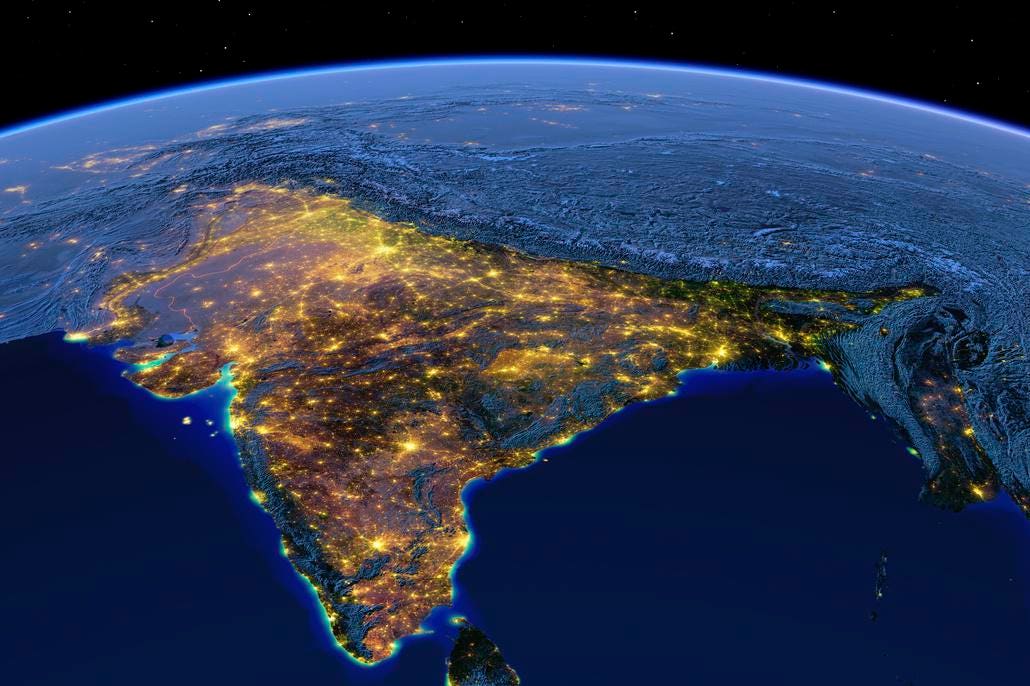Carmit Glik, CEO and Founding Member, Ship4wd.
Following a year in which the Biden-Harris Administration announced a series of steps to build long-term resilience across the supply chain—including the implementation of the Bipartisan Infrastructure Law that reflects “the single largest Federal investment in the country’s ports in U.S. history”—it’s clear there is a shift underway to diversify America’s supply chain. Domestically, the Department of Transportation announced a $450 million Port Infrastructure Development Grant program, “the first and only Federal grant program wholly dedicated to investments in port infrastructure.”
Furthermore, in 2022, the United States overtook China as India’s largest trading partner with bilateral trade exceeding $119 billion. While China has since retaken the top position in total monthly trade—inclusive of both exports and imports—the jockeying for leadership positioning with India is indicative of America’s burdening relationship with the country as a piece of its supply chain diversification puzzle. However, declaring the distinction of a country as a supply chain crisis winner doesn’t come lightly. Covid-19 impacted the global economy and forced not only countries as a whole to reexamine infrastructure, but also entire industries to deploy new tactics to strengthen resiliency. But with change comes transformation, and India is capitalizing on the moment, making it a destination many U.S. companies are looking toward in a concentrated effort to lessen their respective reliance on China.
Factory shutdowns and labor challenges with lockdowns are examples of how China’s supply chain operations have disrupted the ability for U.S. businesses to deliver consistent and reliable domestic product availability for customers. Meanwhile, India is making moves to help businesses diversify their supply chain partners to avoid risks to their operations and, in turn, renew customer trust.
As a leader in the shipping industry, I am particularly interested in why India is winning and how U.S. companies can take advantage. Here are a few factors to consider:
India is propelling growth through government-led infrastructure development.
The Government of India is actively working to support the country’s growth, with plans to reportedly invest $1.4 trillion in infrastructure projects over the next five years through the National Infrastructure Pipeline. The goal is to improve energy, transport and urban infrastructure, as well as digital connectivity and the development of smart cities. The government also has its eyes set on attracting foreign investment and is offering incentives to lure global businesses in the manufacturing sector, including tax breaks and reduced bureaucracy. As a result, many U.S. corporations across industries are recognizing India’s rising position in the supply chain and capitalizing on the country’s offerings and increasing population size. In fact, many major companies are actively moving elements of their operations to the country as a resiliency tactic. Manufacturing relocation could result in increased productivity and the development of cost-effective options for small and midsized enterprises in India, rather than in China.
India is positioning itself as a major player in global transport.
The government is planning to invest $25 billion to improve shipping and port infrastructure, reflecting the country’s increasing importance as a hub for both domestic and international companies and transport. This investment, combined with India’s broader infrastructure improvements, is evidence of its increasingly prominent role in the global supply chain. For U.S.-based small and medium-sized businesses currently reliant on China for their imported goods and materials, India’s leading potential could offer new and alternate long-term benefits.
India has established positive governmental policies benefitting global trade partners.
The pandemic underscored the importance of diversifying supply chains to reduce logistical risks. However, this is highly dependent on government policies that impact national economies and international transactions. India has already implemented several positive governmental policies that have greatly benefited its global trade partners. One notable example is the introduction of the Goods and Services Tax. This unified tax system has simplified the complex tax structure and eliminated multiple indirect taxes, streamlining the business environment and reducing trade barriers. It has not only enhanced the ease of doing business for both domestic and international companies but also fostered transparency and efficiency in the taxation system. This attracts more foreign direct investment and favorably positions India as a trade partner.
Another significant policy initiative is the nationwide “Make in India” campaign, which is an initiative that aims to transform India into a global manufacturing hub by encouraging foreign companies to invest in various sectors. “Make in India” was created to proactively transform India into a global design and manufacturing hub and offers incentives such as tax breaks, relaxed regulations and fast-tracked approvals, further facilitating the establishment of production units and promoting exports. These policies have created a favorable environment for global trade partners, stimulating economic growth and expanding trade opportunities between India and other countries.
India is poised to be a major player in the global supply chain—and even with the country still facing several challenges as it becomes a manufacturing exporting powerhouse—the government appears supportive and proactive in finding solutions. I believe further development of India’s manufacturing industry, shipping capabilities and supply chain will be highly advantageous for U.S. small and medium-sized business owners aspiring to become more active players in global trade because these companies can utilize India’s new resources to import goods more efficiently thanks to the country’s enhanced infrastructure and manufacturing processes. Ultimately, this could benefit both companies and customers as competition increases in the global marketplace. Business owners should take note of their operations and diversify manufacturing worldwide for economic stability and sustainability. Carefully consider your options and the potential benefits of a presence in India as you move your businesses forward.
Forbes Business Council is the foremost growth and networking organization for business owners and leaders. Do I qualify?
Read the full article here




